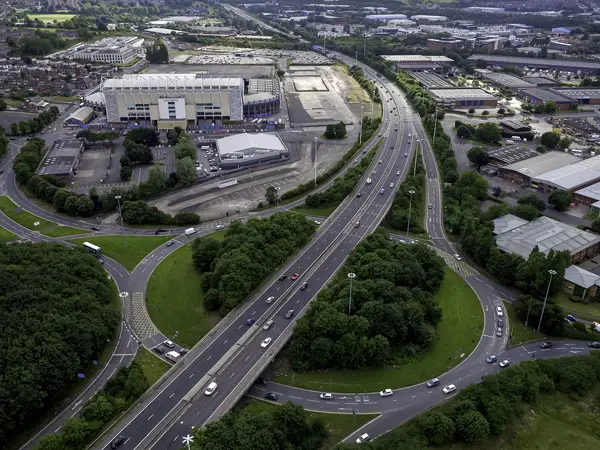National Highways has awarded Keltbray the £49.8 million M621 junctions project contract. Keltbray will perform improvement work on the M621 Junctions 1 to 7. The M621 is an urban highway that stretches through the Southern half of Leeds from Junction 27 of the M62 to Junction 43 of the M1.
Also Read: HS2 High-Speed Rail Project Latest Updates, United Kingdom
The works were initially announced under the 2015-20 Road Investment Strategy. They involve building extra lanes at the Junction 2 roundabout and Junction 3 westbound. Furthermore, it will transform two short stretches of the hard shoulder into an extra lane of traffic between Junctions 1 and 3.
The M621 junctions project scope
The main M621 traffic will be given priority at Junction 3 westbound, allowing it to move more freely. Changes at this intersection will also eliminate conflicts where traffic merges in this region. This includes the permanent closure of Junction 2A’s westbound exit slip road. Thus, it will lower the risk of collisions due to the close proximity of Junctions 3 and 2A.
National Highways stated that new technology will also be installed between Junctions 1 and 7 to detect incidents. This will assist in a quicker response, and get traffic moving. However, the project is not referred to as a smart motorway by National Highways.
M621 junctions improvement to create more dependable journeys in the region
The contract award, according to Phill Price, managing director of infrastructure at Keltbray, “marks a significant step forward for Keltbray in improving its highways business into a nation’s leading provider.”
“We hope to work in partnership with National Highways as we begin works over the coming months. Furthermore, we will continue establishing our reputation in the highways and civils market,” the company stated.
‘The improvements will create more dependable journeys for everyone using the M621. Thus, more people will get to where they need to go safely,’ said James Finnigan, project manager for National Highways.
The main construction phase is scheduled to begin in August 2022 and last through the summer of 2024.

Leave a Reply